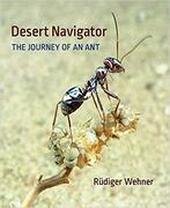 Desert Navigator: The Journey of an Ant Rüdiger Wehner Harvard University Press (2020) Read the Review Here. 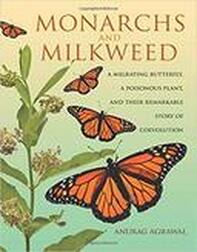 Monarchs and Milkweed: A Migrating Butterfly, a Poisonous Plant, and Their Remarkable Story of Coevolution by Anurag Agrawal (Author) Anurag Agrawal presents a vivid investigation into how the monarch butterfly has evolved closely alongside the milkweed―a toxic plant named for the sticky white substance emitted when its leaves are damaged―and how this inextricable and intimate relationship has been like an arms race over the millennia, a battle of exploitation and defense between two fascinating species. 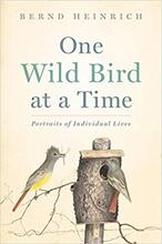 By Bernd Heinrich (scientist and author)— "close day by day observations of wild birds” Bernd Heinrich is a prolific nature writer and has published numerous books that are a joy to read and leave you with a clear sense of how a naturalist thinks about and views nature. [Note: Check out Bernd Heinrich's many other books on nature. He is a wonderful naturalists and great communicator] 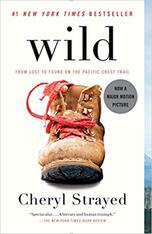 Cheryl Strayed would hike more than a thousand miles of the Pacific Crest Trail from the Mojave Desert through California and Oregon to Washington State—and she would do it alone. Told with suspense and style, sparkling with warmth and humor, Wild powerfully captures the terrors and pleasures of one young woman forging ahead against all odds on a journey that maddened, strengthened, and ultimately healed her. 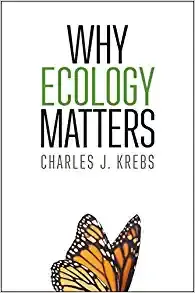 This is a concise, accessible, and up-to-date book for those wanting a quick and easy-to-read book on ecology and its importance. Great intro for the ecology session of Master Naturalist basic training! Charles Krebs enlightens readers about the key principles in ecology—from species extinction to the sun’s role in powering ecosystems—each chapter introduces a general question, illustrates that question with real-world examples, and links it to pressing ecological issues in which humans play a central role, such as the spread of invasive species, climate change, overfishing, and biodiversity conservation. Why Ecology Matters interweaves important discussions of human environmental impacts and their societal implications throughout. It is a book rooted in our contemporary world, delving into ecological issues that are perennial, timeless, but could not be more timely. 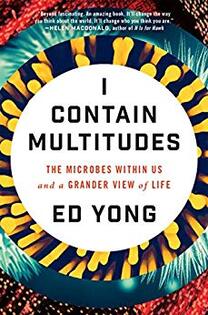 With coronavirus in the news, what better time for master naturalists to bone up on our microbial cousins and their ecology. Joining the ranks of popular science classics like The Botany of Desire and The Selfish Gene, a groundbreaking, wondrously informative, and vastly entertaining examination of the most significant revolution in biology since Darwin—a “microbe’s-eye view” of the world that reveals a marvelous, radically reconceived picture of life on earth. Every animal, whether human, squid, or wasp, is home to millions of bacteria and other microbes. Ed Yong, whose humor is as evident as his erudition, prompts us to look at ourselves and our animal companions in a new light—less as individuals and more as the interconnected, interdependent multitudes we assuredly are. The microbes in our bodies are part of our immune systems and protect us from disease. In the deep oceans, mysterious creatures without mouths or guts depend on microbes for all their energy. Bacteria provide squid with invisibility cloaks, help beetles to bring down forests, and allow worms to cause diseases that afflict millions of people. Many people think of microbes as germs to be eradicated, but those that live with us—the microbiome—build our bodies, protect our health, shape our identities, and grant us incredible abilities. In this astonishing book, Ed Yong takes us on a grand tour through our microbial partners, and introduces us to the scientists on the front lines of discovery. It will change both our view of nature and our sense of where we belong in it. 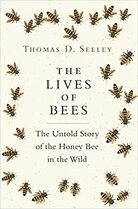 Humans have kept honey bees in hives for millennia, yet only in recent decades have biologists begun to investigate how these industrious insects live in the wild. The Lives of Bees is Thomas Seeley’s captivating story of what scientists are learning about the behavior, social life, and survival strategies of honey bees living outside the beekeeper’s hive―and how wild honey bees may hold the key to reversing the alarming die-off of the planet’s managed honey bee populations. Seeley, a world authority on honey bees, sheds light on why wild honey bees are still thriving while those living in managed colonies are in crisis. Drawing on the latest science as well as insights from his own pioneering fieldwork, he describes in extraordinary detail how honey bees live in nature and shows how this differs significantly from their lives under the management of beekeepers. Seeley presents an entirely new approach to beekeeping―Darwinian Beekeeping―which enables honey bees to use the toolkit of survival skills their species has acquired over the past thirty million years, and to evolve solutions to the new challenges they face today. He shows beekeepers how to use the principles of natural selection to guide their practices, and he offers a new vision of how beekeeping can better align with the natural habits of honey bees. Engagingly written and deeply personal, The Lives of Bees reveals how we can become better custodians of honey bees and make use of their resources in ways that enrich their lives as well as our own. 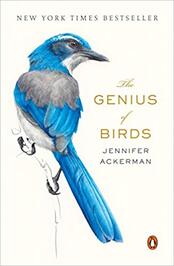 Birds are astonishingly intelligent creatures. According to revolutionary new research, some birds rival primates and even humans in their remarkable forms of intelligence. In The Genius of Birds, acclaimed author Jennifer Ackerman explores their newly discovered brilliance and how it came about. As she travels around the world to the most cutting-edge frontiers of research, Ackerman not only tells the story of the recently uncovered genius of birds but also delves deeply into the latest findings about the bird brain itself that are shifting our view of what it means to be intelligent. At once personal yet scientific, richly informative and beautifully written, The Genius of Birds celebrates the triumphs of these surprising and fiercely intelligent creatures. |
Reading CornerPlease send your book ideas to the Reading Corner. 
Categories
All
Archives
February 2023
|
 RSS Feed
RSS Feed